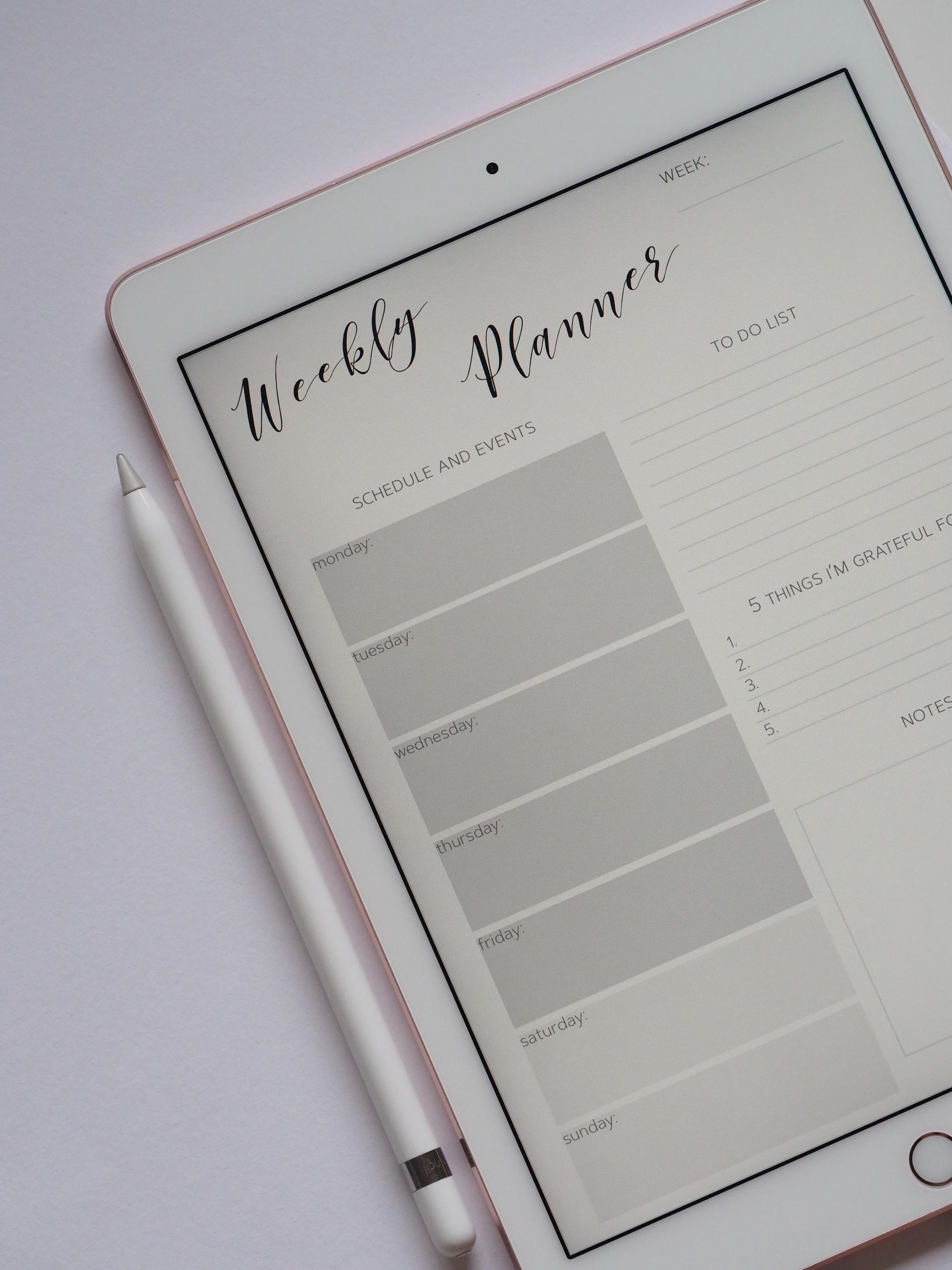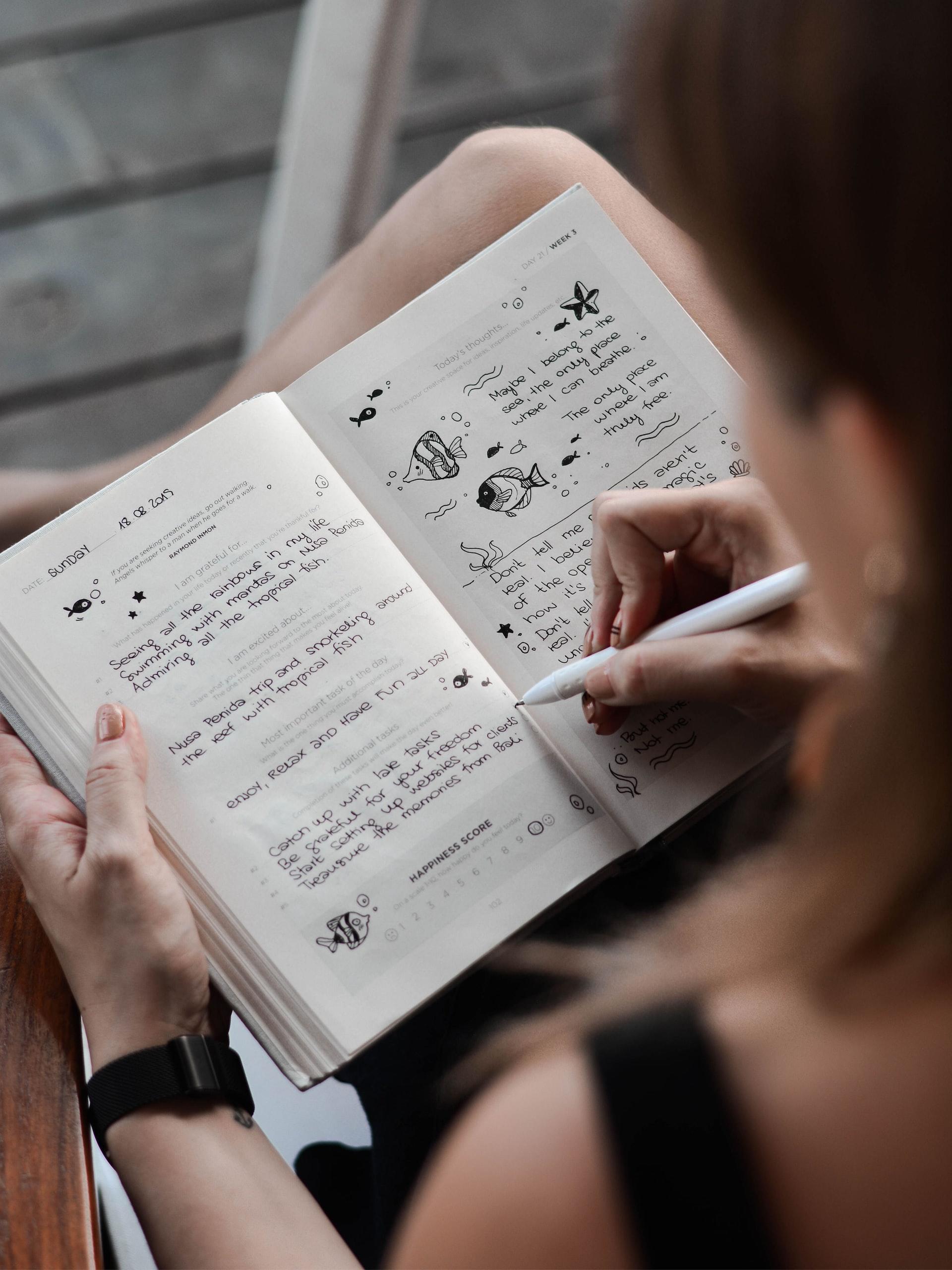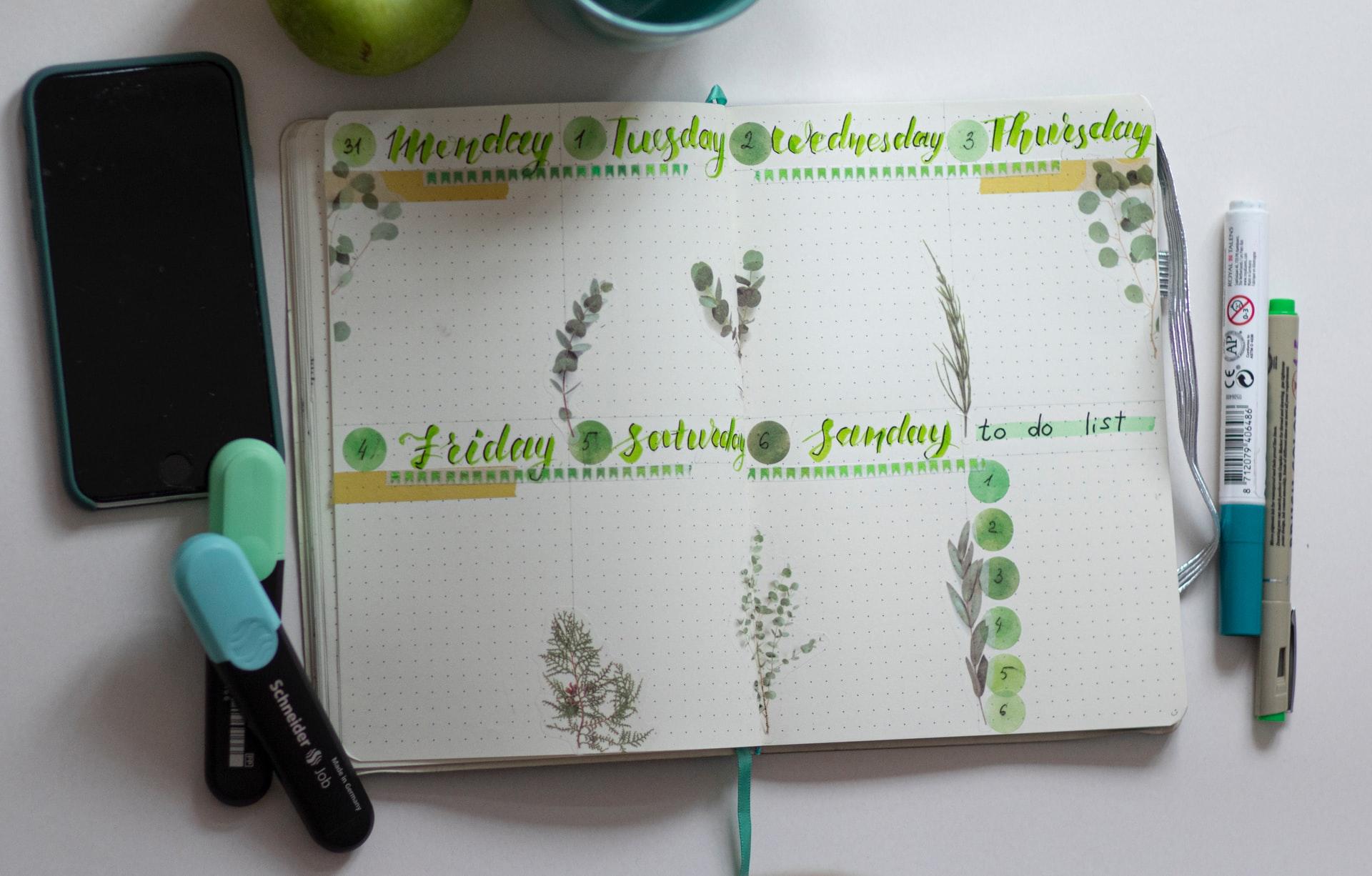Keeping a diary or journal may sound very old-fashioned and it is definitely something many of the greats such as Leonardo da Vinci and Marie Curie, have done in the past.
Yet keeping a diary or journal as some call it has many modern world benefits. Benefits that include but are not restricted to:
- Mental Health/Mindfulness - Journaling has long been recognized as an effective way to reduce stress, help with depression and anxiety, focus your mind, and organize your life. It can be a great tool to use for meditation, to open up, and let go of things that bother you.
- Organisation/Planner - With a daily diary, you can start the day with clarity by getting all your responsibilities in order. Writing down your tasks helps you get a clearer view of the day and makes it easier to stay on track.
- Creative/Brainstorming - Journaling is a useful practice for writers, artists, musicians and anyone engaged in creative work. It encourages capturing ideas and self-reflection, both key skills for creatives. It's also a useful skill for entrepreneurs and busy executives, as it fosters clear thinking. Although this style of journalling is usually a lot messier than the other kinds...
In this article, we are going to explore all of the above in a lot more detail!
"It takes a little bit of mindfulness and a little bit of attention to others to be a good listener, which helps cultivate emotional nurturing and engagement."
- Deepak Chopra

Journalling for Mental Health | Journalling as Mindful Meditation
One of the many benefits of journaling or keeping a diary is that it is a good way to get all of your thoughts and feelings out of your head and down on paper.
Of course in a typical diary or journal, you would write about your day, life, problems, ideas, or anything you feel would express yourself at this moment. Jot down your experiences or things you noticed differently about yourself whether they were positive or negative.
However, a Mindfulness Journal is slightly different. It is specifically focused on making you more aware. Below we are going to look at how you might start your own mindfulness journal.

Tips for Keeping a Mindfulness Journal
On the first page of your mindfulness journal, be sure to include some positive affirmations. Recite these positive affirmations daily, it helps you feel better about yourself and life in general.
Mindfulness journals are very helpful in bringing to attention what matters in life.
A mindfulness journal usually has different pages for every day of the week. For every day of the week, the mindfulness journal will ask questions that elicit a response. The goal of the question is to move you to more of a mindful state.
Some of the prompts in your journal could be:
- Today, what kind of feelings would you like to permit?
- What 2 things are you grateful for today?
- What do you desire to let go of on this day?
- What did you notice about yourself?
- Write down the sensations you feel in your body. Show compassion and do this without any judgment.
- Recall a moment when you felt most calm today.
- Describe a goal you have for the next week.
- Draw something that makes you smile.
Although these prompts are a good guide for beginners, you don’t need a creative mindfulness journal.
Honestly, you can channel your writing in any way that feels natural to you. If you love writing songs, your journal can include choruses, one-liners, verses, or music notes. If you just need a place to vent in private, you might write your emotions out.
Write at your own pace and express yourself in your own way. No one is judging how you do a bit of self-reflection, that is after all the overall aim of mindfulness, reflection, becoming aware of your feelings, acknowledging them and letting them go.

Keeping a Diary for Organisation | Creating a Planner
Personally, I find journals absolutely brilliant for keeping me on track. Back before you could have really cool digital ones on your iPad and phone are used to carry around a giant Filofax or ring binder style refillable journal, which would contain everything from my daily chores to my appointments for both school and health as well as my random thoughts and feelings for the day. I loved my organiser and that's what they were called beforehand an organiser but now they are planners.
Just like everything else, it's been rebranded, updated, and upgraded and to be honest, it's not necessarily the worst thing in the world. Is it more convenient to be on your phone and your tablet? Sure.
But do I miss the pen and paper? Writing things down physically so I don't forget...

Creative Benefits of Keeping a Journal
Although this style of journalling is usually a lot messier than the other kinds, filled with not just one medium but several from doodles to music notes and quotes as well as brainstorm bubbles and random parts even scratched out upon later reflection.
Journaling is actually a super useful practice for writers, artists, musicians and anyone engaged in creative work. It encourages capturing ideas and self-reflection, both key skills for creatives. It's also a valuable skill for entrepreneurs and busy executives, as it fosters clear thinking.
When you have a great idea and you commit it to paper, it makes room for new ones to flood in. By writing in a journal you take part in the regular practice of “brain dumping” which ensures there’s always free space in your head for new ideas.
A journal is your private playground. You can experiment there freely, hone your craft, practice new ways of writing and melodies or try on new ideas for size.
Since your journal is just for you, you are freed from the pressure of performing. There’s no feedback, which means you’re more likely to put words out there without censoring beforehand.
Journaling lets you practice, you can try different methods and styles in your comfort zone.
Summarise with AI:















